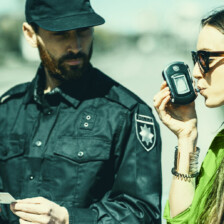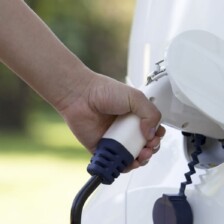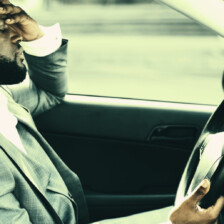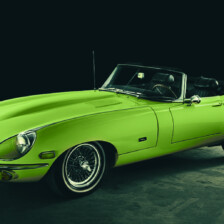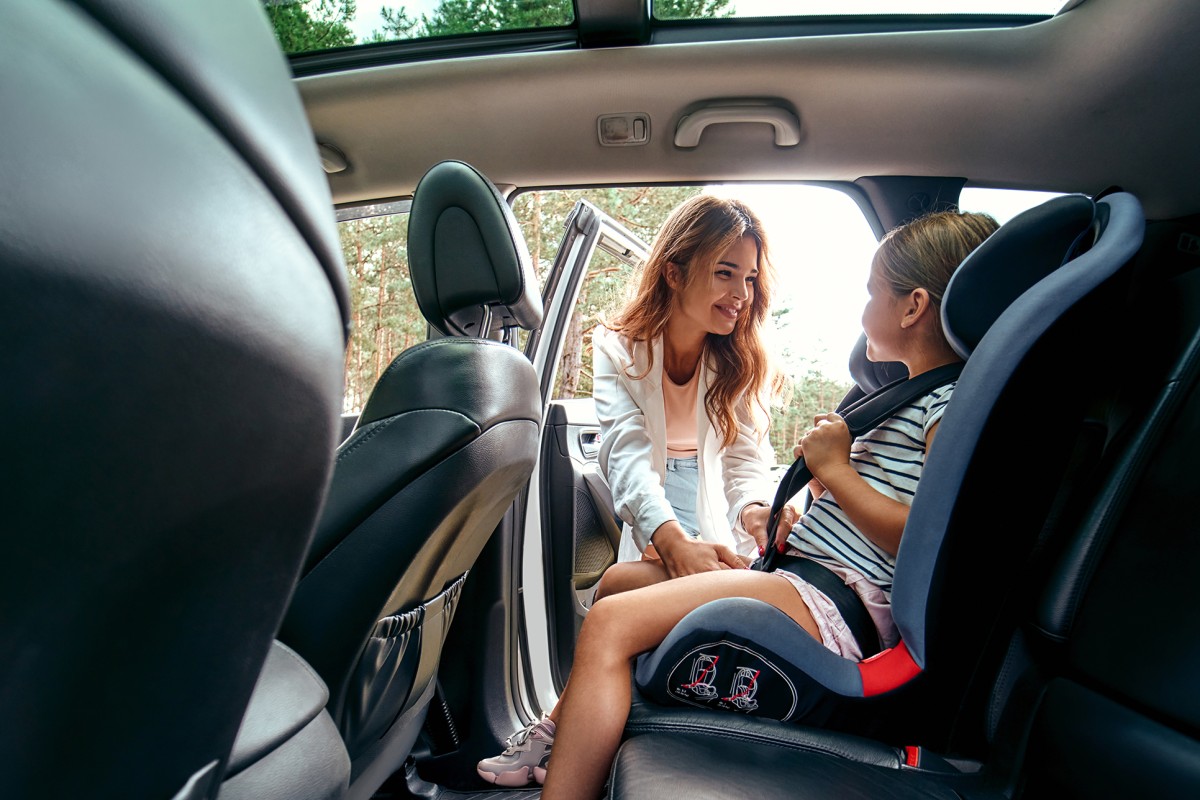
Car Insurance
Civil liability insurance is mandatory for all car owners. This will protect you in the event of material damage caused to another vehicle.
Other types of coverage can be added to fully insure your car, as well as your passengers, in the event of an accident.
Types of coverage and options
Multiple coverages tailored to your situation.
-
Civil liability
Third party liability coverage is mandatory for all vehicle owners. This coverage follows you every step of the way and protects you in case of accidental damage caused by your vehicle to other people or their vehicles. We recommend that you increase your third party liability coverage if you drive outside Quebec and Canada.
-
All risk
All risk coverage includes your third party liability, comprehensive, and collision and upset. This is the most comprehensive coverage of all.
-
Collision or upset (impact with a vehicle)
As the name suggests, this coverage insures you in the event of a collision with another vehicle or in the event of an upset. With this coverage, the cost of repairing and replacing your vehicle due to property damage (based on the value on the day of the loss) will be covered. is coverage applies if you collide with another car, with the ground, with an object on the ground or if your vehicle is overturned.
-
Comprehensive incidents
This type of coverage insures your vehicle for loss or damage that is not caused by a collision with another vehicle. What types of incidents are covered? eft or attempted theft, vandalism, damage caused by falling trees or objects, damage caused by an animal (including a collision with a deer) and damage caused by lightning, high winds, rising water, earthquakes or fires.
-
Third party liability for vehicles not owned by the insured
This protection covers damage to a vehicle rented or borrowed from a third party. This coverage applies in Canada and in the United States.
Other option
Enhance your insurance with these add-ons to your policy that offer you even more protection, for optimal coverage that can handle any situation. These protections are not always included in standard packages, so it’s best to check and make sure they are included in your contract!
-
Roadside assistance
This coverage ensures that you have access to roadside assistance in the event of an accident or breakdown. In addition to roadside repairs, roadside assistance may also include towing, unlocking doors, jumping the battery, installing a spare tire and providing fuel.
-
Replacement insurance
This protection covers the replacement of your vehicle in the event of a claim. Two options are available to you. You can choose to replace your vehicle with another of equivalent value or obtain financial compensation of equivalent value for the purchase of a vehicle of your choice.
-
Replacement cost insurance
This coverage allows you to replace your property that has been damaged without deduction for depreciation. The premium will be determined based on the new value. It is important to be aware of the exclusions mentioned in the contract.
-
Loss of use
This coverage applies if you are deprived of your vehicle following an accident for which you are not responsible or if a serious breakdown prevents you from using your vehicle.
-
Life & health insurance and medical expenses
This coverage compensates you in the event of death or dismemberment. This protection covers your medical expenses and total disability if you suffer bodily injuries in a car accident.
-
Legal assistance
Legal insurance allows you to benefit from financial assistance so you can quickly access legal services from the lawyer of your choice. With the goal of offering you peace of mind, this additional coverage will ensure that your fees are covered.
Insuring a private vehicle
With AMR, it’s not complicated! All you have to do is ask.
Modified vehicle insurance
Modifications made to an automobile (special or personalized paint, lowered suspension, modified engine, transformation into a motorhome, conversion of an engine, etc.), even if they are only aesthetic, influence your insurance contract. All the modifications made must be declared to your insurer so as not to have unpleasant surprises in the event of an incident.
Damaged vehicle insurance
Damaged vehicle following an accident. The seller of the damaged vehicle is obliged to report the damage to the buyer. Some insurers agree to insure seriously damaged vehicles, provided that an inspection is carried out by the Insurance Bureau of Canada.
Antique or collectible car insurance
Cars between 25 and 30 years old are considered antique vehicles. Your vehicle must meet certain conditions in order to be classified as a classic car by an insurer. Our brokers can advise you on coverage specific to antique vehicles and offer you good civil liability coverage.
Luxury car insurance
Cars from brands such as Bentley, Lamborghini, Maserati, Rolls-Royce cannot be insured by all insurers since they cannot all assume the same degree of risk. Our independent insurance brokers know the difference between a standard automobile and a luxury automobile. They will be able to advise you on the appropriate protections.
Rental vehicle insurance
Protections for rented vehicles are often limited. It is important to check the limitations of the contract so that you do not have to shell out the difference out of pocket. By adding additional protection for damage to borrowed or rented vehicles in the event of an accident for which you are responsible, you will avoid paying additional costs.
Electric vehicle insurance
Do you own an electric or hybrid vehicle? Your eco-friendly purchase may have an impact on your insurance premiums. Our independent brokers can direct you to insurers offering attractive rates!
Answers to your questions
-
How do I cancel my car insurance policy?
To cancel your auto insurance policy, you can contact your AMR insurance broker, who will take care of the formalities with your current insurance company and, if necessary, find you a new insurer that better suits your needs or budget.
-
How long should you keep your auto insurance documents?
You should keep your car insurance documents for at least one year after your policy expires. They may be useful in the event of a dispute or litigation with your insurance company or another party involved in an accident.
Claim settlement documents should be kept for at least seven years, as some disputes can take several years to be settled.
Please note, however, that requirements may vary by jurisdiction and insurance company, so be sure to ask your broker for recommendations that apply to your unique situation.
-
How does car insurance work?
To protect drivers financially in the event of car accidents, insurance companies assess the risks associated with each driver and their vehicle, then set rates based on those assessments.
If an accident occurs, policyholders can file a claim with their insurance company (through their broker if applicable) and receive an amount to cover—depending on the policy they have purchased—property damage and bodily injury to the other party involved in the accident in the case of liability insurance (which is mandatory) or damage to both parties in the case of comprehensive insurance (which is optional).
-
What is car insurance for?
Car insurance protects drivers against the financial risks associated with car accidents.
In Quebec, car insurance has two components:
- Chapter A (mandatory), or “one-way” insurance as people say, which covers third party liability, i.e. property damage caused to another person’s vehicle and bodily injury (which would not be covered by the SAAQ) caused to another person.
- Chapter B (optional), also nicknamed “two-way insurance,” which covers damage to your own vehicle.
Tips and advices
-
How Does Drinking and Driving Affect Your Car Insurance?
-
Insurance and Criminal Records: How To Avoid Being Refused
-
Car insurance in Sherbrooke: are you really well protected?
-
Car insurance and electric cars : Any peculiarities?
-
Car insurance and bad credit
-
Vehicle to be stored? Notify your insurer!
Why choose us?
When you choose AMR Assurances Multi-Risques, you’re opting for a team of insurance experts. More than just brokers, we are advisors who have your best interests at heart.
Our primary mission is to represent you with various insurers and to offer you a product that meets your needs. And because life moves fast, we negotiate to get you the best insurance contract at the best quality-price ratio to guarantee you peace of mind.
Don’t wait any longer!

We’re passionate about insurance

We compare the best protections

We speak your language

Water, fire, smoke or vandalism damage?
don’t panic!
We’re here to help
often occur when you least expect them. AMR Assurances Multi-Risques guides you step by step to help relieve all your worries.
